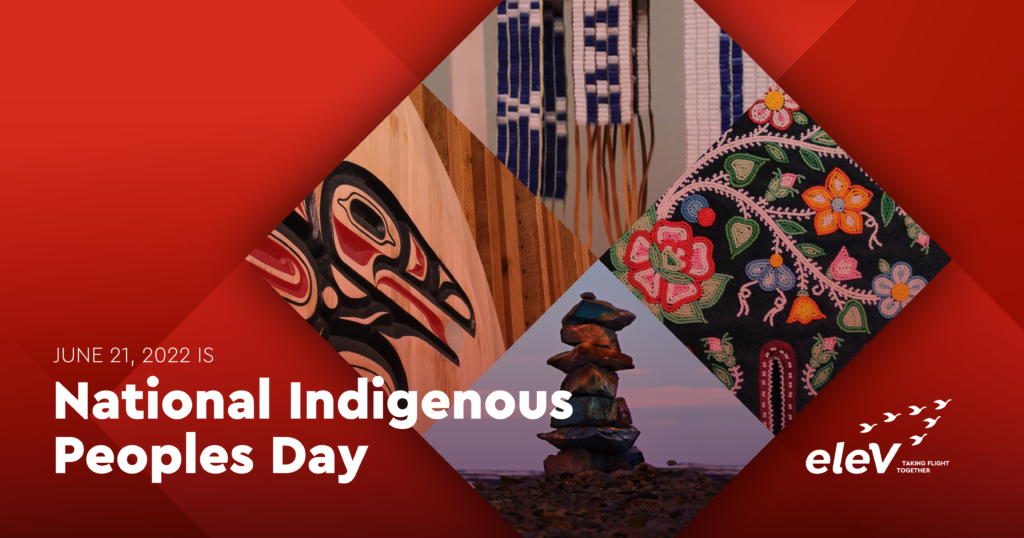National Indigenous History Month and National Indigenous Peoples Day

June is National Indigenous History Month in Canada, with the focus of the month being National Indigenous Peoples Day on June 21st. Observed annually on the first day of summer in the northern hemisphere, this important day honours the unique heritage, diverse cultures and achievements of First Nations, Inuit, and Métis peoples. It is a reminder to centre Indigenous histories, contemporary realities, and perspectives in all of our work, and an opportunity to reflect deeply about our collective and individual commitments to advancing the Truth and Reconciliation Commission of Canada’s 94 Calls to Action.
In 2008, then-Prime Minister of Canada Stephen Harper issued the historic apology for Indian residential schools on behalf of all Canadians. The following year, June was designated as National Aboriginal History Month (later changed in 2017 to National Indigenous History Month, to reflect the preferred term “Indigenous”).
First Nations, Métis, and Inuit people use June as an opportunity to mark important moments in their own histories, as well as their shared histories with the newcomers. This is also an important opportunity for public education among non-Indigenous Canadians. For many, the history of Indigenous Peoples was, until recently, unknown, little understood, and rarely taught. Generations of Canadians have gone through their lives without learning about the residential schools, the impacts of the Indian Act, the significance of Treaties and our responsibilities to one another under the Treaties, or the contributions of Indigenous Peoples to Canada.
The Canadian Truth and Reconciliation Commission’s (TRC) final report and the 94 Calls to Action in 2015 set out a path to reconciliation among Indigenous and non-Indigenous people in Canada. The TRC pointed to education as a key to reconciliation. The Mastercard Foundation heard the calls to action and is working to support Indigenous-led solutions in education and employment with youth at the centre of this work with the program EleV. EleV recognizes that Indigenous youth are the youngest, fastest growing population in the country and the leaders and agents of change for their communities and the country as a whole.


